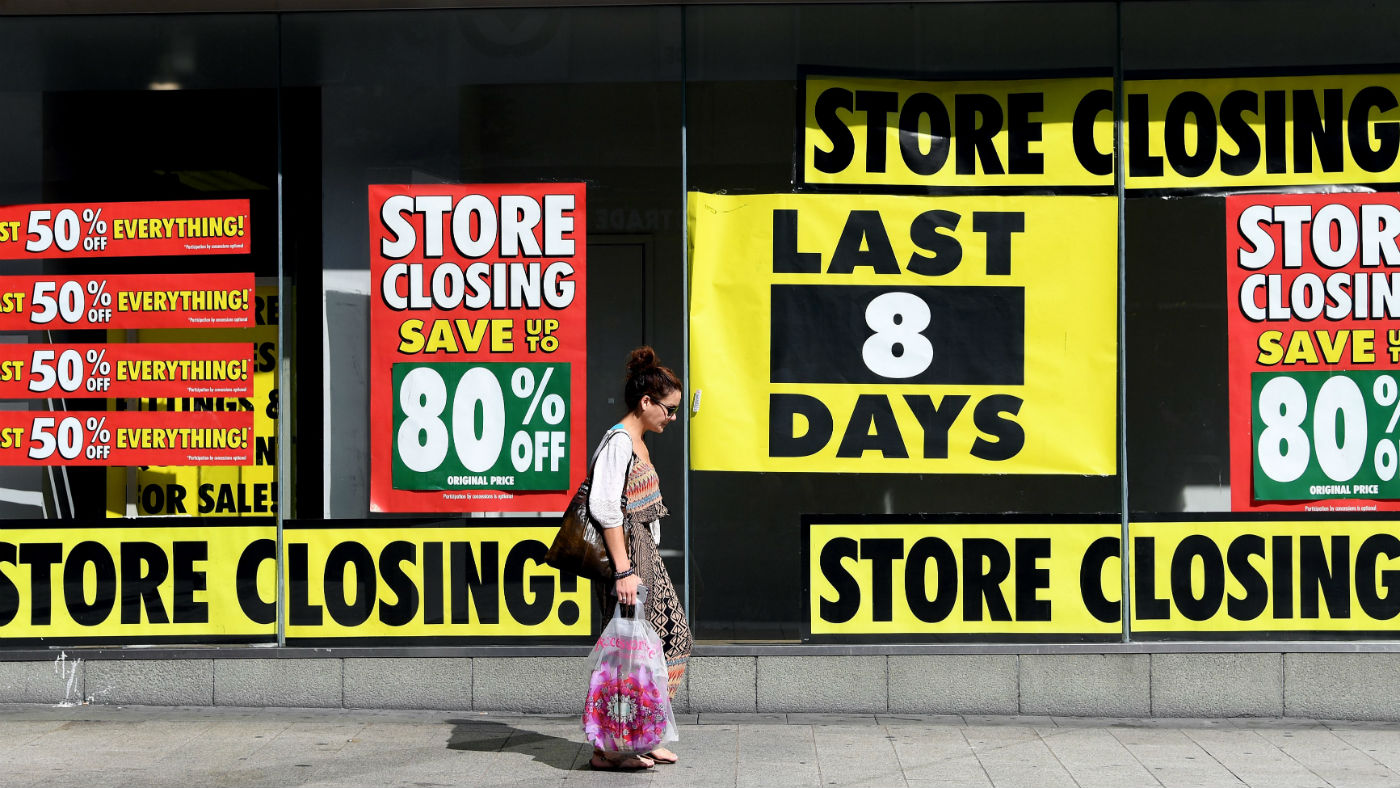House of Fraser enters administration: can anything save the British high street?
Mike Ashley buys retail chain for £90m despite dwindling consumer activity

A free daily email with the biggest news stories of the day – and the best features from TheWeek.com
You are now subscribed
Your newsletter sign-up was successful
House of Fraser has been bought by Sports Direct tycoon Mike Ashley just hours after going into administration this morning.
Ashley - who already had an 11% stake in the retailer - signed the deal after House of Fraser released a statement saying that negotiations with investors and creditors had “not concluded in a solvent solution”. In an announcement to the stock market, Sports Direct said it had acquired all 59 of the department store chain's UK stores, the brand and all of the stock in the business, the Daily Express reports.
“But it is unclear how much of the business will survive,” says the BBC, noting that it is a “worrying time” for the 169-year-old company’s 17,500 staff.
The Week
Escape your echo chamber. Get the facts behind the news, plus analysis from multiple perspectives.

Sign up for The Week's Free Newsletters
From our morning news briefing to a weekly Good News Newsletter, get the best of The Week delivered directly to your inbox.
From our morning news briefing to a weekly Good News Newsletter, get the best of The Week delivered directly to your inbox.
Ashley faces an uphill battle to revamp the high-street stalwart amid an increasingly unfriendly retail landscape.
In June, House of Fraser chairman Frank Slevin warned that the retail industry was undergoing “fundamental change”.
Accountancy firm KPMG, which oversaw the insolvency process, said the chain had been hit by “mounting pressures” facing the sector, reports the BBC.
So is the British high street really doomed?
A free daily email with the biggest news stories of the day – and the best features from TheWeek.com
Fewer people are visiting shops, and more retail units are standing empty, than since the height of the recession in 2009 - prompting warnings that the high street is in an “unprecedented” and potentially terminal decline.
Data shows that the town centre vacancy rate rose to 9.2% in 2017, with all areas of the UK except Greater London reporting an increase.
Although warm weather and the World Cup resulted in increased sales of drinks, food and electric fans during June and July, the overall narrative is of a slump in 2018, Reuters reports.
“Last month’s sweltering temperatures kept shoppers focused on eating, drinking and keeping cool. Food sales had their best July in five years, while fans and cooling equipment flew off the shelves,” said Helen Dickinson, chief executive of the British Retail Consortium (BRC). “However, total sales growth slowed as the heat laid bare the underlying weakness in consumer spending.”
The figures make grim reading for a sector already reeling from a wave of store closures, amid what The Guardian describes as a “brutal climate that is putting thousands of retail jobs at risk”.
Toys R Us, Maplin and BHS are just some of the household names to have shut up shop over the past 12 months, and New Look and Carpetright are among the big names resorting to company voluntary arrangements (CVAs), a form of insolvency used to close unprofitable stores.
In March, Mothercare revealed that it had a £80m pensions black hole and was on course to breach the terms of its bank loan. In May, it emerged that the US owner of Poundworld had put the discount retailer up for sale.